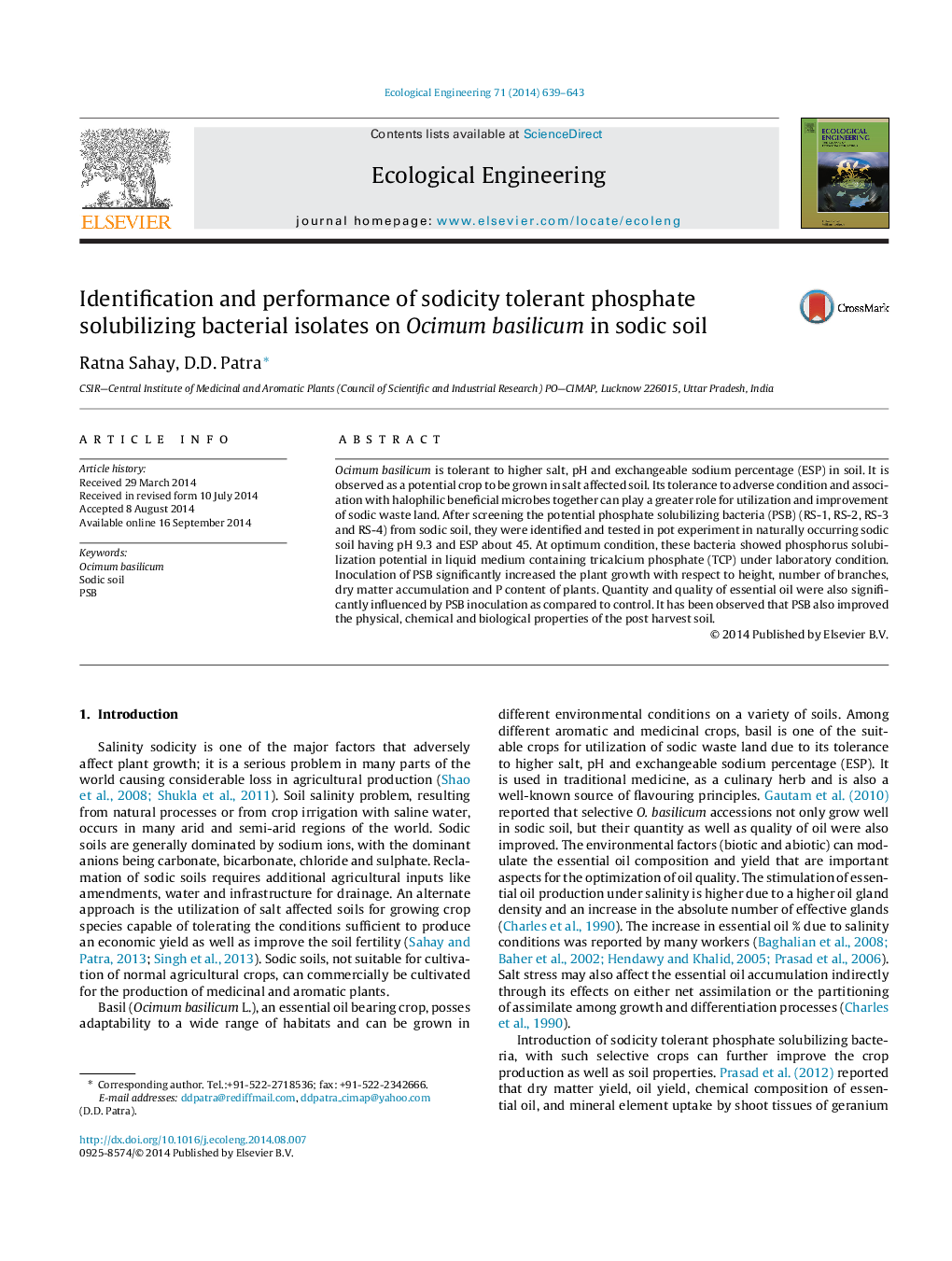| Article ID | Journal | Published Year | Pages | File Type |
|---|---|---|---|---|
| 4389206 | Ecological Engineering | 2014 | 5 Pages |
Abstract
Ocimum basilicum is tolerant to higher salt, pH and exchangeable sodium percentage (ESP) in soil. It is observed as a potential crop to be grown in salt affected soil. Its tolerance to adverse condition and association with halophilic beneficial microbes together can play a greater role for utilization and improvement of sodic waste land. After screening the potential phosphate solubilizing bacteria (PSB) (RS-1, RS-2, RS-3 and RS-4) from sodic soil, they were identified and tested in pot experiment in naturally occurring sodic soil having pH 9.3 and ESP about 45. At optimum condition, these bacteria showed phosphorus solubilization potential in liquid medium containing tricalcium phosphate (TCP) under laboratory condition. Inoculation of PSB significantly increased the plant growth with respect to height, number of branches, dry matter accumulation and P content of plants. Quantity and quality of essential oil were also significantly influenced by PSB inoculation as compared to control. It has been observed that PSB also improved the physical, chemical and biological properties of the post harvest soil.
Keywords
Related Topics
Life Sciences
Agricultural and Biological Sciences
Ecology, Evolution, Behavior and Systematics
Authors
Ratna Sahay, D.D. Patra,
